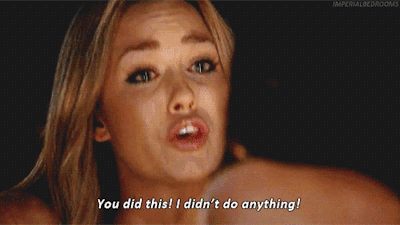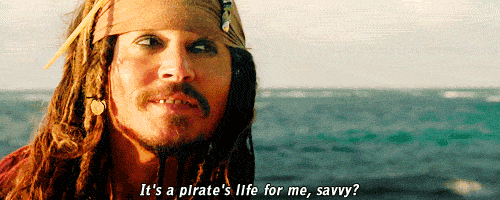A 2015 report found that Australians are more likely to download content compared to the UK. Movies are the most downloaded content, followed by music, TV programs and video games. Respondents to a survey, conducted by the Department of Communications, said they pirated content because it was free, quick and convenient.
The report also found which factors would be most likely to encourage people to stop downloading content.
- 39% would stop downloading if legal content cost less
- 38% would stop downloading if content was more available
- 36% would stop downloading if content was available as soon as it was released
- 21% would stop if their internet provider threatened to suspend their account. (Bradford 2015)
When it comes to movies and television shows, streaming services that are now available, like Netflix, address the first two points (cheaper and more available), and the threat of facing charges for downloading Dallas Buyers Club address the final point (to an extent). It is definitely a step in the right direction – if you are a company or department that wants to regulate piracy. In fact, research by the Intellectual Property Awareness Foundation:
“suggests that Australian consumers have embraced local streaming services, particularly those aged under 30: 46 per cent of 18 to 24-year-olds and 49 percent of 25 to 30-year-olds say they have streamed content via an online subscription service” (Demasi 2015).
But, as researcher Laura Demasi points out in a 2015 Sydney Morning Herald article, there is still a culture of pirating in Australia, which is “normalized and socially acceptable”, as well as “something to be proud of”. She uses an example of people who do not engage in piracy but accept pirated material off of family members or friends without questioning where it came from, if it was obtained illegally, or caring if the creators of the content are getting any financial recognition. (Demasi 2015)

Story time:
This a story of a girl, I’ll call her Lassi Flower (definitely not Kassi Klower – do not get confused), who’s sister, we’ll call her Jada, would come over to her house once a week with a massive hard drive and a list of movies, television series and music that she wanted. The two sisters would drink wine and have dinner, while Lassi’s high-speed internet was going overtime to download wave after wave of content, working its way down the list Jada had bought over.
Jada would then take her hard drive, newly filled with the newest season of whatever-it-was and newest release movies, and go home. Jada’s boyfriends’ friends would visit, USB’s in hand, and take what they wanted from Jada’s hard drive. The process would repeat week after week.
Now, Lassi was the only one doing anything illegal in this scenario, but a minimum of five people were benefiting – and this was only one case! Imagine that happening all over Australia.
Because it is so easy to access torrent sites. Even though there are things like the Copyright Amendment (Online Infringement) Bill 2015, which aim to prevent Australians accessing torrent sites, pirates have an upper hand and will make new sites, find loopholes and sneak around the bill’s faster than the government can put them in place and make them law. For the purposes of research, I tried to find a torrent site while writing this, including the popular The Pirate Bay, which routinely gets blocked – before the site finds a way to get back up again – and I found it absolutely with no dramas. I’d make a great pirate.

Piracy is on a decline but it will take massive changes to Australian media options to stop – like can we just get the television shows right away please because spoilers suck – and I’m not confident we will ever fully be rid of piracy. Because audiences today want content now.
Why should I wait three days for the newest episode of Criminal Minds to get to me, when I can download it and hour after it airs in the US? Why should I have to wait until the DVD boxset of a show comes out before watching it when I can download it for free and watch it in one sitting, without leaving my bed once, like the procrastinating human being I am?
While Netflix and other streaming services have caused a decline in Australian pirating – now 25 percent down from 29 percent (Demasi 2015) – lack of content on the services could be another way to attempt to tackle the problem.
“Gizmodo editor Luke Hopewell said services such as Netflix have made illegal downloads less relevant. But for the laws to work more effectively, rights holders need to make sacrifices.”Consumers are still noticing those catalogues aren’t as full as they could be,” Mr Hopewell told SBS.
“If rights holders could let go of some of that content so it can be negotiated to have more content in Australia available on these services at those good prices, that’s the carrot we need…” (Thomas 2015)
Piracy could be seen as a result of all of the elements of modern Australian audience behavior combining in one place. No longer content with the television and waiting on a strict schedule of when things will be shown, we want everything now and not a minute later. We simultaneously want to be engaged with our content, but also want to watch it while doing other things.

So maybe piracy is the next logical (yet illegal) step in media consumption because it means we do not have to wait for the media to get to our shores, or be uploaded to our streaming device. We do not have to pay for a pay TV service, and we can pause or rewatch something again and again.
Then again, maybe we’re just selfish.
REFERENCES:
Bradford, K 2015, ‘Figures showing Australians twice as likely to pirate content as Brits ‘disappointingly high’’, Mumbrella, July 22, viewed September 30 2016, < https://mumbrella.com.au/figures-showing-australians-twice-as-likely-to-pirate-content-as-brits-disappointingly-high-307306>
Demasi, L 2015, ‘Ending piracy will take more than just making the content available’, Sydney Morning Herald, November 2, viewed October 1 2016, < http://www.smh.com.au/digital-life/social-radar/what-now-for-piracy-in-australia-20151101-gkoet0.html>
Thomas, J 2015, ‘How will Australia’s anti-piracy law affect you?’, SBS, 24 June, viewed 1 October 2016, < http://www.sbs.com.au/news/article/2015/06/23/how-will-australias-anti-piracy-law-affect-you>
